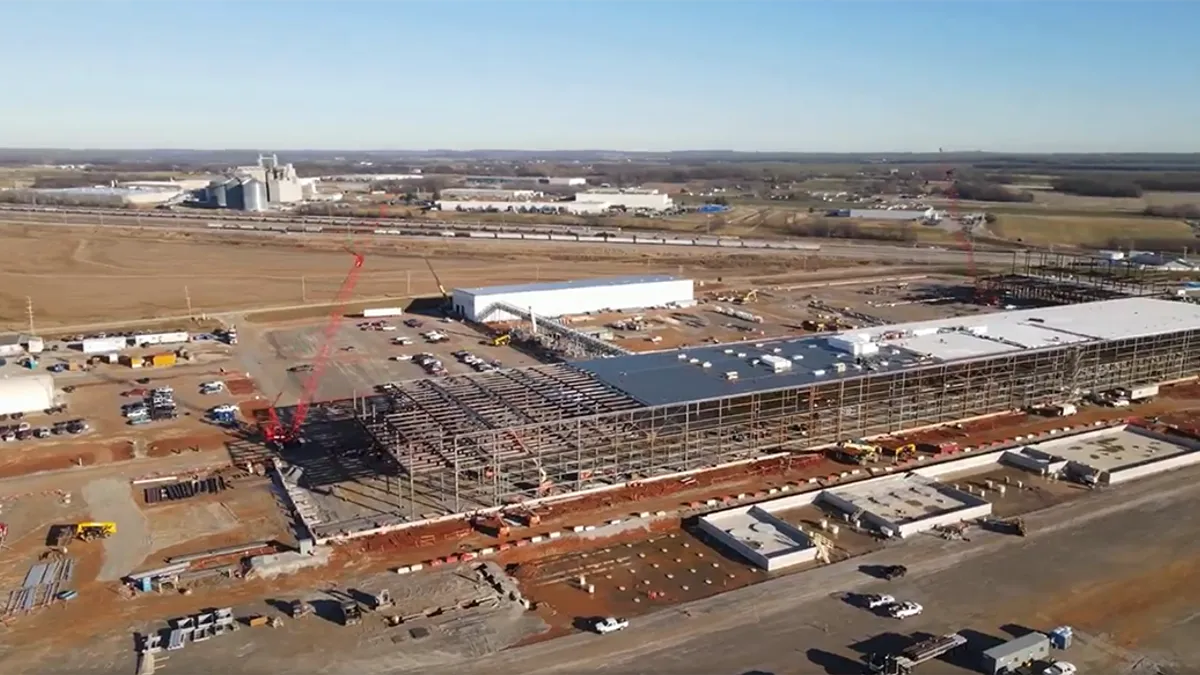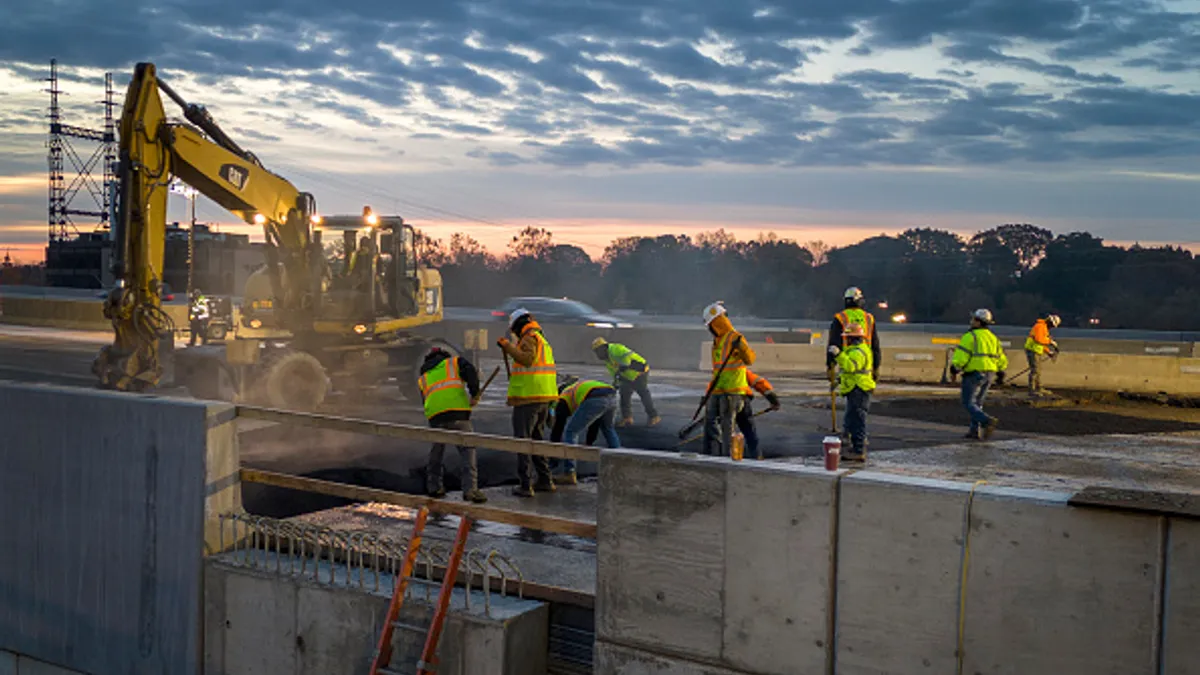The Clean Water Act (CWA), in effect since 1972 and administered by the Environmental Protection Agency (EPA) and the Army Corps of Engineers, has a straightforward mission — to prevent water pollution. The waters it protects are defined as all "navigable waters" or waters with a "significant nexus" to navigable waters. In an effort to define, once and for all, what that means exactly, the EPA finalized its Clean Water Rule in 2015, which lays out which bodies of water are considered "waters of the United States (WOTUS)."
The new rule landed squarely in the crosshairs of construction industry organizations like the Associated General Contractors of America and the National Association of Home Builders, both of which vehemently protested what the groups considered an expansive overreach of the EPA's authority and a continued lack of clarity about what defined WOTUS.
This ambiguity even has homebuilders seriously contemplating whether features like manmade ditches classify as WOTUS, according to Tom Ward, NAHB's vice president of legal advocacy.
AGC General Counsel Michael Kennedy said, "You might imagine a speed limit sign that simply read, 'Go fast enough, but don't overdo it.' How would you ever know what that really meant? This is one of those rules of law that doesn't provide anyone with clear notice of its reach, and these determinations are difficult to make. They're far from black and white."
27 states agreed with that assessment and filed challenges, and a federal appeals court stayed the new rule nationwide. While that's working its way through the legal system, however, construction industry organizations still consider the administrative procedures of the CWA itself to be fair game, which made the May 31 US Army Corps of Engineers v. Hawkes Co. U.S. Supreme Court decision, in which the court ruled against the Corps of Engineers, such a celebrated ruling.
Inside the SCOTUS decision
Before the Hawkes ruling, one of the more burdensome procedural requirements of the CWA mandated that in order to dispute an Army Corps of Engineers determination that a property contained WOTUS, a landowner or developer had to complete the entire CWA Section 404 permit process, potentially taking years and hundreds of thousands of dollars. Then, after that process was complete, the landowner could dispute the determination in court.
"It's not fair," said Chuck Reed, special counsel at Hopkins & Carley and the former mayor of San Jose, CA. "The federal government has got tremendous power, and the regulations are basically set up to keep people from being able to have their day in court and to not allow them to get into the judicial system as a check on the power of the federal government. We have courts for a reason. People have constitutional rights for a reason."
However, in its decision late last month, the U.S. Supreme Court ruled that, despite CWA regulations, landowners do not have to complete the 404 permit process before seeking a court ruling but may do so immediately after receiving a final Army Corps of Engineers or EPA jurisdictional determination (JD) that the property in question contains WOTUS. "I think it's a victory for constitutional rights, in this case property owner rights," Reed said.
"It is the Corps of Engineers that makes these determinations, and, in this particular case (US Army Corps of Engineers v. Hawkes Co.), the owner was dealing with a 530-acre parcel of land that has mud flats, sand flats, wetlands, potholes and wet meadows," Kennedy said. "The property owner took the initiative to apply for a permit in an effort to get a determination before it did any work on the land."
Property owners are "well versed enough" to know when they may or may not be at risk for a WOTUS determination, as the potential fine for doing so is $37,500 per day, Kennedy said.
"The government has always taken the position in the Clean Water Act that when you have a JD — when they come out and say this area of your property is a water of the United States — (the landowner) can't go to court on that, and they’ve always won up until the Hawkes decision," Ward said.
Ramifications of the ruling
Because of that position by the government, there is a minimal amount of case law interpreting what is and what isn't WOTUS. "I'm hoping that with this ruling, we will get some decisions from the courts that will put some bounds on (that)," Ward said.
Reed added, "There will be many more reasons and many more opportunities to challenge jurisdictional issues, and that will generate some case law, and that will put some constraints on the reach of the federal government."
Ward agreed and cited the example of the Corps of Engineers' interpretation of WOTUS to mean that water underground but within one foot of the surface is considered "standing water" and protected. "There's a question that might be a good one to litigate," he said. "That might be one the court would look at and say, 'Is that really a water of the United States? Is that what Congress meant?'"
How the rule affects contractors
The ruling is also good news for contractors, according to Reed. "It helps reduce the amount of time it might take to get moving on a project and allows them to litigate issues of jurisdiction without having to wait until they've gone entirely through a permitting process," he said. Fighting the jurisdiction issue earlier doesn't necessarily equate to an easier fight, but the ability to receive a quicker ruling "makes a huge difference in the timeline on a project," Reed added.
Cost concerns are also top of mind for contractors. "If you can get the jurisdictional issue litigated earlier, it saves you time and money because if you can win the jurisdictional question, then you don't have to go through the permitting process and spend money on consultants and engineers," Reed said. "You can have them work on the project instead."
"What the court said is that you need not waste your time and money trying to get a permit if the courts find that your waters are not jurisdictional," Kennedy said. "So it eliminates a tremendous amount of waste and allows individual landowners to get impartial determinations and not be pushed around by the cost of applying for a permit that, in the end, they may not need."
'Legitimate reasons' to have WOTUS
But, at the end of the day, all of this litigation over procedural questions doesn't mean the CWA doesn’t serve a purpose. "There are legitimate reasons to have jurisdiction over the waters of the United States, and there are people who break the law and people that pollute," Reed said. "Those are all legitimate. Again, it's always a balancing of how do you control bad behavior without making it impossible for people to do reasonable things on their property."
Reed added, "I don't think (the government) starts out with the premise of making it more difficult to do business. I think they do things looking through their special lens without regard to the broader impacts. They're supposed to, under the Administrative Procedures Act, consider a lot of things. They don't necessarily do that."





















